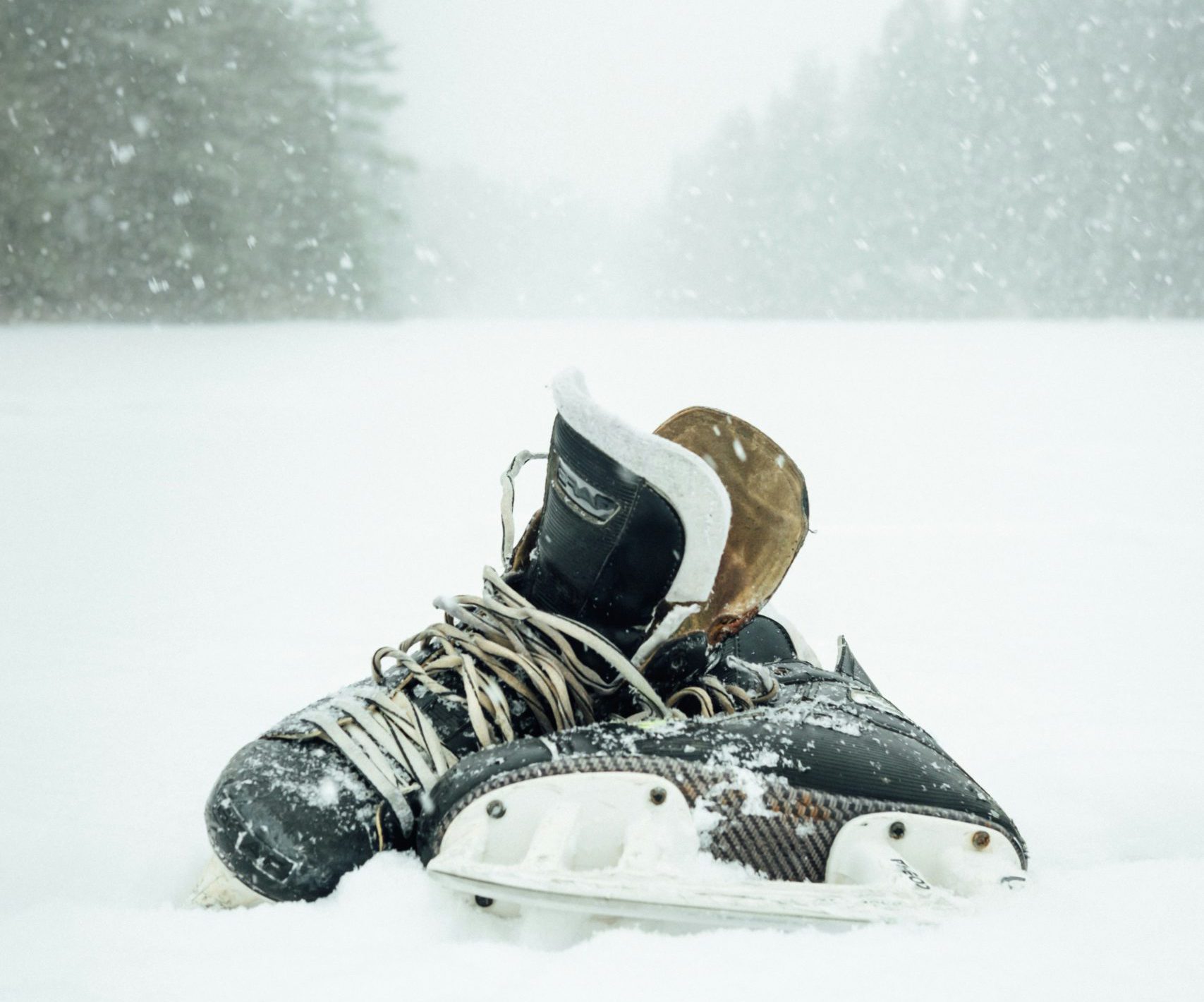“We love the game authentically, and we want people to be able to be authentic within the game,” says Russ Herrington, the York Lions’ varsity men’s hockey coach, and head coach for the national para hockey team.
In the beginning of October, the NHL banned players from wearing Pride Tape during warm-ups and all league activities. Excalibur wanted to find out how York Lions’ hockey coaches Dan Church (women’s hockey) and Russ Herrington (men’s hockey) support their athletes in these turbulent times.
When addressing the ban on Pride Tape, Coach Church says: “The first thing I did was speak to my team about it and get their perspective. I voiced my disappointment in the NHL policy and my support for Pride and an inclusive environment. I also put Pride Tape on my stick that I use in practice as an act of solidarity.”
Although the ban was reversed later in October, for a time it cast doubts on whether hockey is moving towards inclusivity. Coaches Herrington and Church think there is hope for professional hockey, but the change in attitudes is taking a long time to be reflected in the game.
“When people talk about professional hockey, they often equate that with men’s hockey. Many players voiced their disagreement with, and challenged, the policy around Pride Tape [and] Pride Nights. I think this shows a shift in thinking in men’s professional sport, but change is slow moving,” Church explains.
“Women’s sport has always been further ahead in terms of being inclusive,” he adds. “With the advent of the new Professional Women’s Hockey League (PWHL) hopefully [they get] the visibility to show how powerful an inclusive environment can be.”
We asked Herrington about the steps he takes to challenge the narrative around men’s hockey with his team.
“We have a great opportunity to use our platform to show that we’re allies,” Herrington tells Excalibur. “Bayne Pettinger (an NHL agent and vocal 2SLGBTQIA+ advocate in hockey) is a close friend of mine. I’ve brought him in more than once to speak to our team and to describe his journey as a gay male working with the men’s hockey [team] for so many years to figure out better ways that we can be allies, create safe environments, and be inclusive.” This year, the Lions men’s hockey also held its first-ever Pride game, hosting a keynote session with Pettinger.
“When we say we want to be inclusive, we have to live that out on a daily basis. Being mindful about our language, especially between each other, opponents, and officials […], [being] cognizant of respectful lyrics, what we follow social media-wise, the discussions that we have in the room, he says.
“When we have people come into our dressing room, we want them to be authentically who they are and be loved because of it.”
We asked the coaches if there is a future for mixed-gender teams in the binary environment of hockey both at York and on a professional level.
“Is it possible? Yes,” says Church. “I think there are some teams that already have mixed environments in training like cross country and track and field. Our strength and conditioning space is a mixed environment in drop-in hours. While the possibility of mixed environments may be possible in some sports, in other sports that is less likely.
“When you look at contact sports like football, rugby, and hockey there would be safety concerns with athletes of different sizes, and in sports like volleyball and basketball, height differences may not contribute to a fair playing environment. I think mixed-gender teams are more likely at a recreational level as opposed to Varsity athletics.”
Excalibur asked the coaches about what York hockey can do to make the training spaces less binary; for example, by introducing gender neutral washrooms and single-person stalls.
Herrington responds: “It would certainly be something we would examine if we came across a situation where someone did say ‘you know what, I just don’t feel this is allowing me to be who I am’.”
In the changing landscape of hockey, Church walked Excalibur through the resources available to the players to challenge their thinking and foster a safe space.
“It is not uncommon for our athletes to be open about their sexuality and gender identity. In terms of outside resources and support, the department has an athlete services team to link athletes with resources on campus. The OUA ran a ‘We are ONE’ campaign to support the 2SLGBTQIA+ with the slogan, ‘If you can play, YOU can play’.”
“Additionally, there are organizations like Athlete Ally that we have links with to support our 2SLGBTQIA+ athletes. They ran a ‘Transgender & Nonbinary Inclusion in Sport: 101’ for OUA and USPORTS coaches and administrators on Thursday.”
While a lot of change is yet to come, and the process on the world stage may be slow, women’s and men’s hockey teams at York are taking proactive steps to ensure an inclusive environment on and off the rink, and respond to world events outside of hockey.
“Those conversations are ongoing and keep recurring as things come up in the news,” says Herrington. “Just because we’re at the rink doesn’t mean that we should be ignoring them.”




